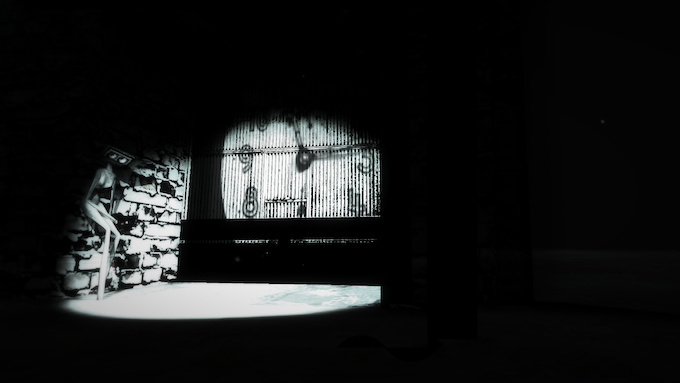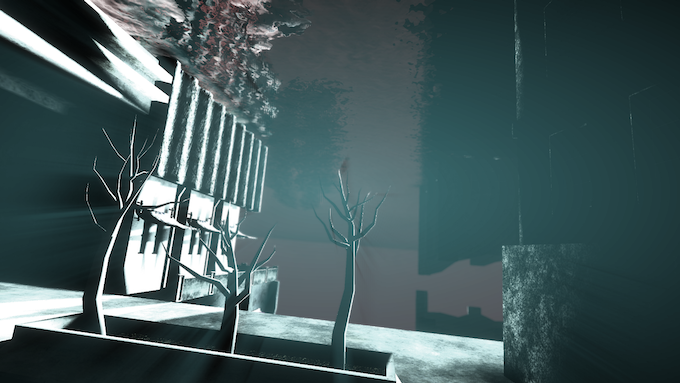You play an outsider to the world, an entity with a singular, enigmatic goal – to find and dispose of five other beings. Your arrival here has fractured the world; the city that these other beings resided in is now broken into shards across a broken, bleak landscape.
You must infiltrate these cities, searching to discover your marks – investigating both precisely who, and where.
Keeping to the shadows is to be encouraged – reality here is a fragile place. Your interactions with the world cause it to fall apart. In homage to Burrough’s cut-up technique, the world collapses and rebuilds itself the more you interact with it – future areas rebuilt with the fragments and personality of places you mistreated. From this every play-through will, subtly or drastically, be unique to you.
The fragile state is inherent in the entire setting. The spoken words of its inhabitants materialize physically – collect the frustrations of a guard unable to locate you and use them to distract, mislead and spread disinformation. Gather the intimate words of an illicit conversation and use them to unveil secrets, hidden pockets within the city. Turn them into reality – a character mentions rats and you can turn his words into a devouring swarm of them.
Traditional rules are lost. Buildings ignore gravity, ignore the constraints of space. Architecture adopts the mind-state of its inhabitants, who are in turn physically and violently changed in response. This is a world that is as horrific as often as it is absurd and inane.
Some, but not all of the features you’ll find in Tangiers are:
- Shadow based stealth engine.
- Sandbox environments: choose how you’ll proceed through areas and the manner in which you do so, be it ghosting unseen or methodically disposing of all you come across.
- Expansive external landscapes full of side-narratives and hidden areas to discover.
- Language becomes reality – collect other characters’ spoken word to utilize as a tool to your own ends. Use words and combine them with your standard abilities to distract, mislead or create new effects based on their meaning.
- Non-linear progression: Entirely up to you as to the order in which you approach each levels.
- Reactive difficulty: The depth of challenge in areas is set based upon your overall progress.
- Reactive game world: The world of Tangiers rebuilds itself as you progress, based upon what you do and where you do it.
- Windows, Mac and Linux versions.


